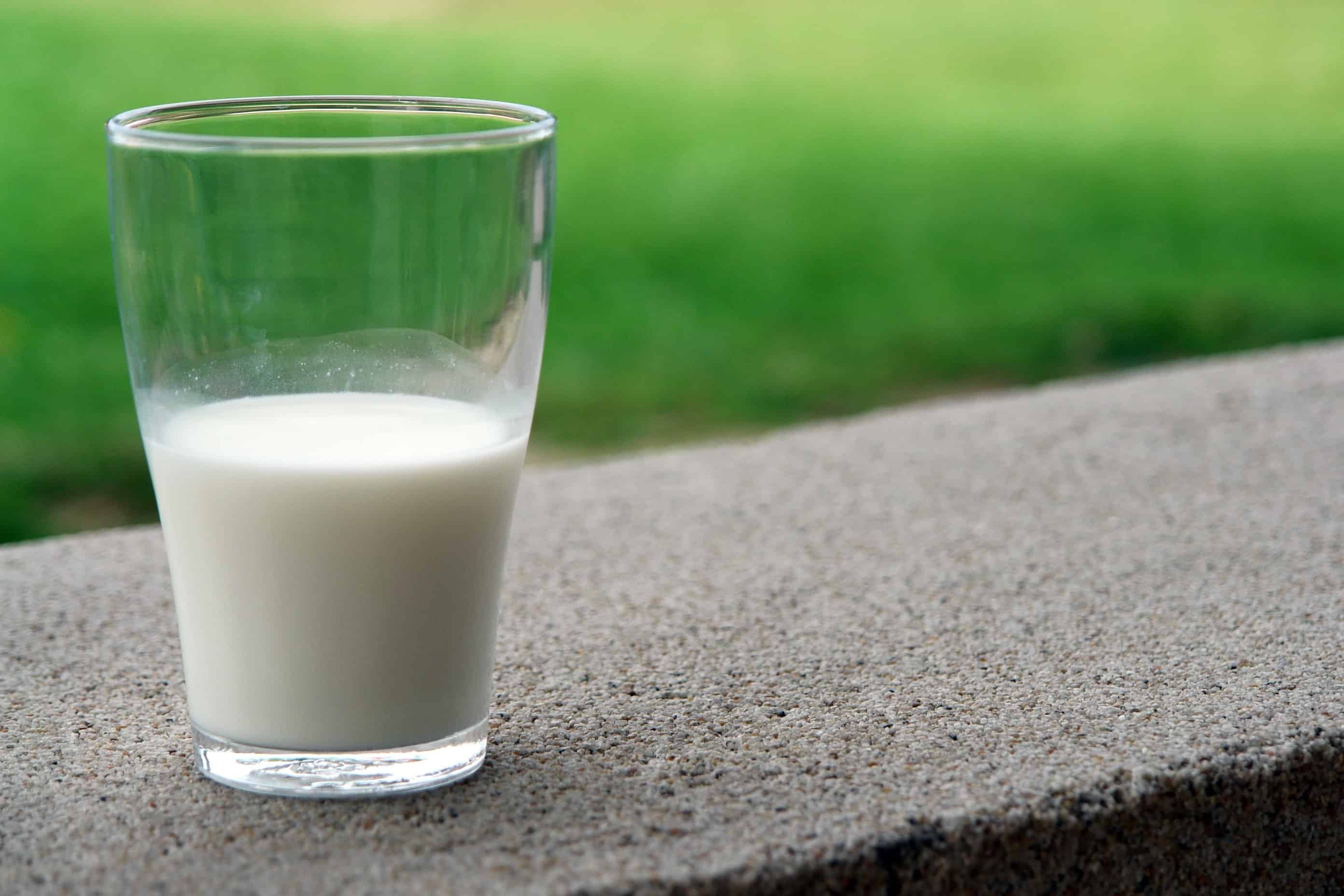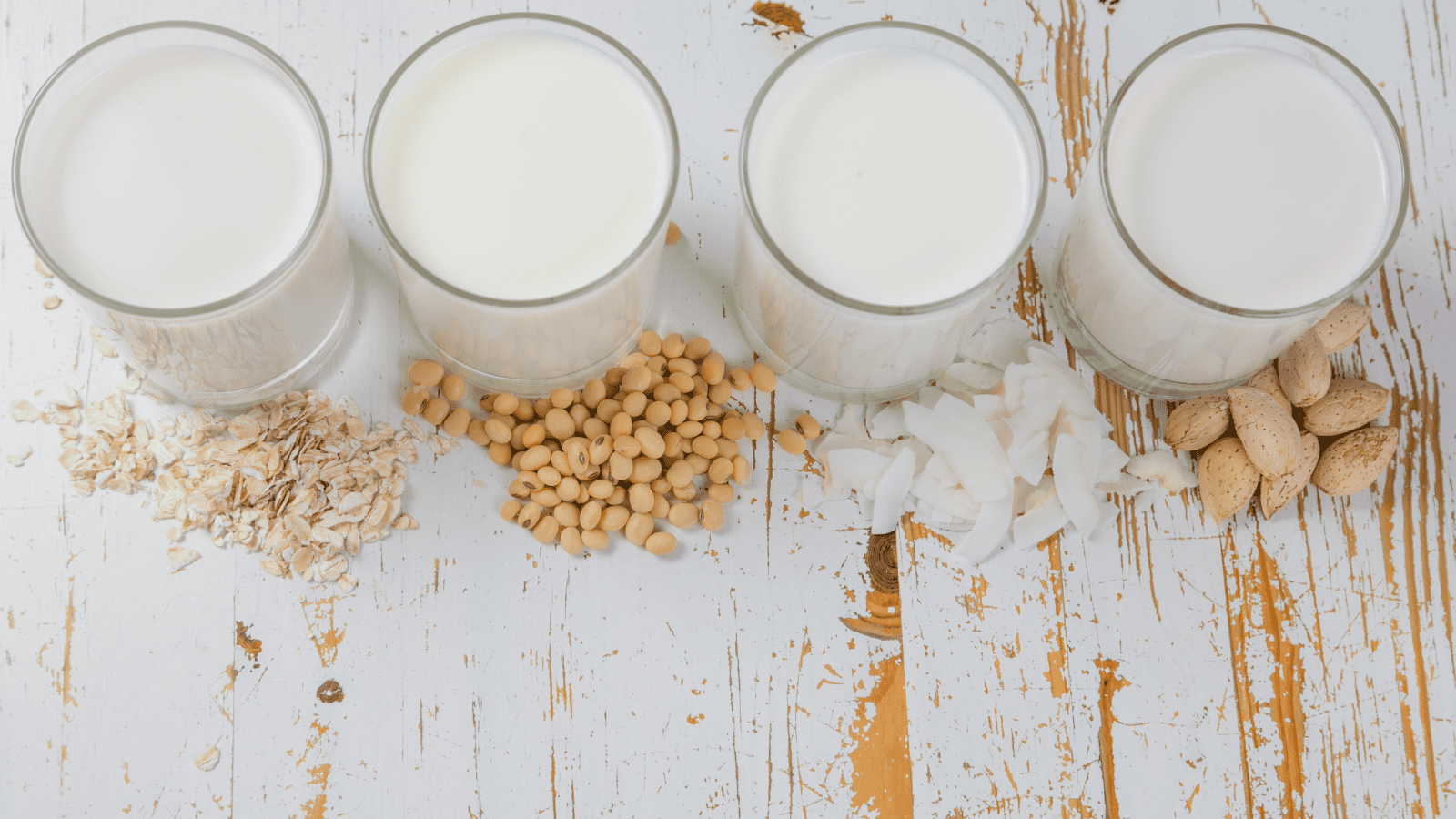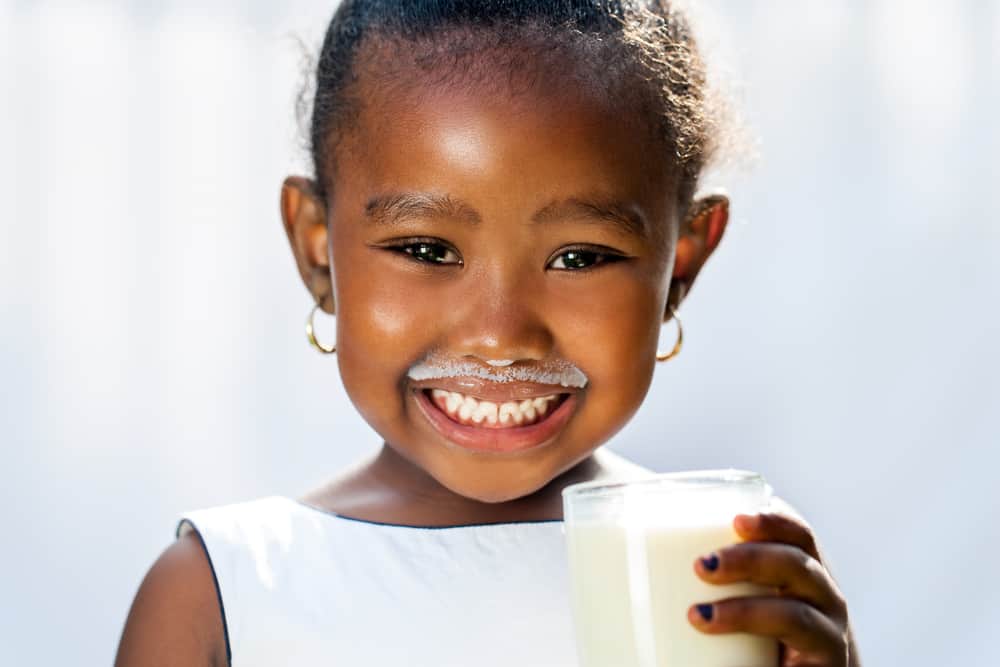It is important to ensure your toddler gets enough fluid across the day and this can be achieved by offering them six to eight drinks (each 100 to 150ml). You may find your little one needs more fluids in warm weather or when exercising. The best drinks for your toddler are milk and water. Water should be offered across the day and tap water is fine to offer (over the age of 6 months, it does not need to be boiled and cooled).
Milk choices for your toddler
Your child should be offered three portions of dairy foods each day. Milk is included in this category along with cheese, yoghurt, fromage frais, custard, puddings made from milk and milk-based sauces.
The current UK dietary guidelines recommend that children who are not being breastfed after the age of 1 year drink animal milk as their main milk drink; most commonly recommending cows’ milk. Animal milks contain high quality protein, are complete with all essential amino acids and are a good source of highly bioavailable calcium, vitamin A, B vitamins, zinc and iodine.
- Breast milk can still be offered to children up to and beyond 2 years of age as there are continued benefits to mum and your little one
- Whole (full fat) milk should be give to children aged from one to two years as their main drink, to make sure they get enough energy and nutrients
- Semi-skimmed milk can be offered to children over the age of two years if they are growing well and eating a healthy, balanced diet
- Goats’ and sheeps’ milk can be provided for children over the age of one year.

What about milk alternatives for your toddler?
Current UK public health guidance is that unsweetened, fortified milk alternatives (with the exception of rice-based milk alternatives) can be used as a non-dairy alternative to cow’s milk for children over the age of one year.
Milk alternatives vary in their composition and can be lower in energy and some important nutrients in comparison to full-fat animal milk.
Care needs to be taken that the rest of the diet provides adequate energy and nutrients.
You should seek advice if choosing plant-based milks for very young children to ensure that the whole diet is energy and nutrient-dense and that important nutrients are included from other food sources.
- There are an increasing variety of plan-based milk alternatives available in the supermarket in the UK. Currently, plant-based milk alternatives are not regulated and have no standard composition. This means the energy and nutritional content can vary between plant-based milk types and brands. The main ingredient of plant based milks is water and they typically only contain 2-10% of the plant. In addition ingredients are added to act as flavourings, preservatives, stabilsiers, emulsifiers and thickening agents as well as fortificants.
- A recent report from the First Steps Nutrition Trust (PDF, 453KB) recommends soya-based and pea-based products are the most sensible choice, since nut-based and coconut-based products in that category are very low in energy and protein. Choose milk-based alternatives that are fortified with calcium, zinc, iodine, riboflavin and vitamin B12.
- If your little one has a Cow’s Milk Protein (CMP) allergy please see advice from your GP or dietitian.
A note on Oat-based milk alternatives
They do not have added sweeteners but contain free sugars from the processing of oats. Some oat based milk alternatives contain more sugar per 100mls than some sweetened soya, almond and pea-based milk alternatives. There are currently no recommendations that families with young children should avoid oat-based milk alternatives but it is worth considering their sugar content when making your choice.

Which Milks to Avoid?
- Unpasteurised milk and milk drinks.
- Children under the age of five should not be given rice drinks as they have been found to contain small amounts of arsenic (NHS, 2021 (oprns in new tab)).
- Skimmed milk should not be given to children under 5. Children over 5 should only be offered skimmed milk if they are growing well.
- Flavoured plant-based milk alternatives due to their sugar content e.g. chocolate, strawberry flavoured milk alternatives
Toddler milks and growing-up milks contain more sugar than animal milk and less important nutrients such as calcium and iodine.
Experts across Europe agree that young children do not need toddler milks to obtain particular nutrients and that food and drinks in the diet will provide children with the nutrition they need (with the exception of vitamin D).
There is some evidence that giving extra nutrients in fortified drinks to children who don’t need them may be bad for their health in the longer term.
Offering sweetened drinks to young children may also contribute to the development of a sweet tooth and becoming overweight in childhood.
How much milk should you offer your toddler?
Children over one year of age should have no more than 350-500mls of cows milk each day, including any milk in foods.
Children over 2 years may have less than 1 year olds.
More than 500ml of milk is likely to spoil a your child’s appetite for other foods and could worsen any fussy eating behaviours.
If a child over the age of one wakes in the night, they should only be offered water as this will help to protect their teeth and ensure it doesn’t reduce their appetite for food during the day.
It is important not to replace foods with milk if your child is fussy/picky at mealtimes. Otherwise they may continue to refuse family foods as they know they’ll be given something different.

- 1-2 year olds can have around 400mls of cows’ milk a day. The 400mls might be made up of a drink in the morning, milk with snacks, and a drink before bed or a nap, depending on how you manage your child’s eating and sleeping patterns across the day. If breast milk is your child’s main milk drink, there is no need to know how much milk they are receiving, as the intake will naturally adapt around food consumption. You may breastfeed in the morning and at night and offer a smaller amount of cows’ milk during the day.
- 2-4 year olds probably need about 300-350ml of milk a day as they will eat bigger portions of food at meals, may need fewer or shorter daytime naps, or not want a drink before bed. Large amounts of cows’ milk, particularly when given in a bottle, are linked to poorer dietary habits in young children, who won’t have the appetite for foods at meals. Remember if children are having other dairy foods across the day, for example a yoghurt and cheese, then children may just need less milk.
What cups should I use?
Use an open top cup or beaker when offering all drinks to children over the age of one. If using a lidded cup, it should be free flowing without a valve, to encourage children to sip rather than suck, as this is better for their teeth.

For more information on nutrition for toddlers
Parents can sign up to our e-guide and/or webinar here (opens in new tab)
Early Years Settings can book our Food and Nutrition for Toddler training (opens in new tab).

Very helpful information.
I learned new alternatives milk that I have never heard about it before as a pea based Products.
Thus all information encourage me to learn more about the importance of the quality of milk giving to our toddler.